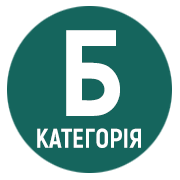LINGUISTIC PREREQUISITES FOR THE TRANSLATION OF ELECTROTECHNICAL AND LEGAL TERMINOLOGY OF EUROPEAN DIRECTIVES
DOI:
https://doi.org/10.32782/2412-933X/2025-XXIII-14Keywords:
term, terminology, translation, directive, linguistic featuresAbstract
The article analyses the linguistic prerequisites for the translation of a European directive regulating the internal electricity market of the European Union. The aim of the study is to analyse the linguistic and syntactic features of Directive (EU) 2019/944 that determine the adequacy and equivalence of the translation of international regulations, in particular in the field of electrical and legal terminology. The research focuses on electrical and legal terminology aimed at harmonising Ukrainian legislation with the EU acquis. The specifics of legal discourse are considered: standardised language constructions, complex syntactic structures, nominalisation and use of technical terminology, which ensure unambiguous interpretation of regulatory documents. The process of integration of Ukrainian and European legislation requires high-quality translation of documents regulating key aspects of international cooperation. The study emphasises the importance of electrical terminology, which includes such categories as technical terms, energy concepts, legal terms with technical context, and general terms. The emphasis is placed on terminology as an important element of the text of the directives, which, functioning in conjunction with common vocabulary, ensures the unification of knowledge for the European common market. The author emphasises the importance of correct reproduction of the terminological content of international documents, especially in the electricity sector, where errors can have significant legal, technical and economic consequences. The study found that electrical engineering and legal terminology are closely intertwined, as modern electrical engineering technologies are global in nature and require clear regulation at the legal level. The translation of international documents should rely on modern methods, such as the development of glossaries of terms, the use of digital tools for text analysis, and the integration of legal and technical discourses. The study lays the foundation for further research in the field of legal and technical translation in the context of Ukraine’s European integration.
References
Дудок Р.І. Проблема значення та смислу терміна в гуманітарних науках. Львів : Видавничий центр ЛНУ імені Івана Франка, 2009. 358 с.
Іващишин О.М. Англійські термінологічні словосполучення у текстах з проблем техногенного впливу на довкілля : автореф. дис. ... канд. філол. наук : 10.02.04 ; Львівський національний ун-т ім. Івана Франка. Львів, 2007. 20 с.
Про затвердження Порядку здійснення перекладу на українську мову актів Європейського Союзу acquis communautaire та на англійську мову актів законодавства України, пов’язаних з виконанням зобов’язань України у сфері європейської інтеграції : Постанова Кабінету Міністрів України від 2 травня 2023 р. № 451. URL: https://zakon.rada.gov.ua/laws/show/451-2023-п#n13.
Ріба-Гринишин О.М. Типологія лексичних одиниць німецькомовного науково-технічного тексту з нафтової промисловості. Наукові праці Чорноморського державного університету імені Петра Могили. Серія «Філологія. Мовознавство». 2013. Вип. 207. Т. 219. С. 102–104.
Смерницький Д. Технічне право: міжгалузевий інститут права. Jurnalul juridic national: teorie şi practică. 2021. № 2 (47). Р. 10–14.
Янковець О.В. Англійська прикордонна термінологія: структурно-семантичний, когнітивний і функціональний аспекти : дис. ... докт. філософії за спеціальністю 035 «Філологія». Чернівецький національний університет імені Юрія Федьковича; Львівський національний університет імені Івана Франка. Чернівці ; Львів, 2021. 316 с.
Directive (EU) 2019/944 of the European Parliament and of the Council URL: https://eur-lex.europa.eu/eli/dir/2019/944/oj.






